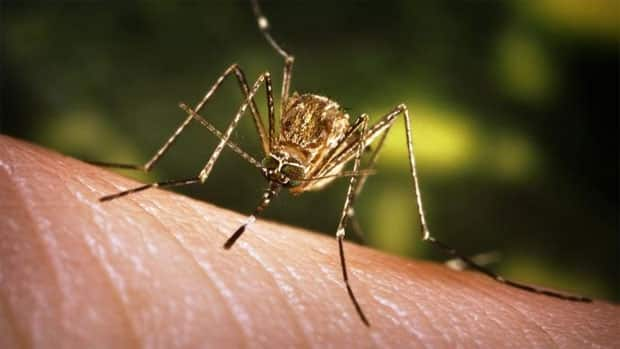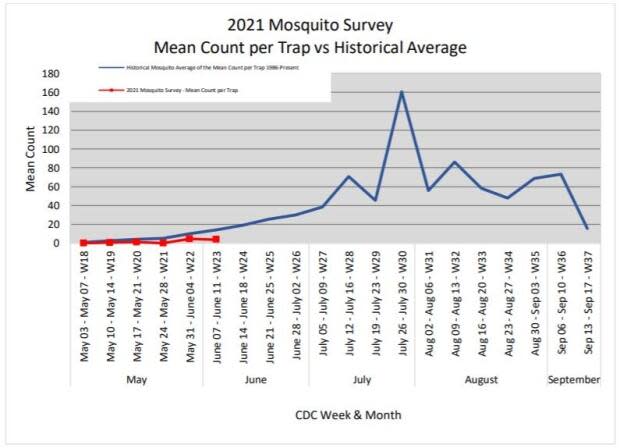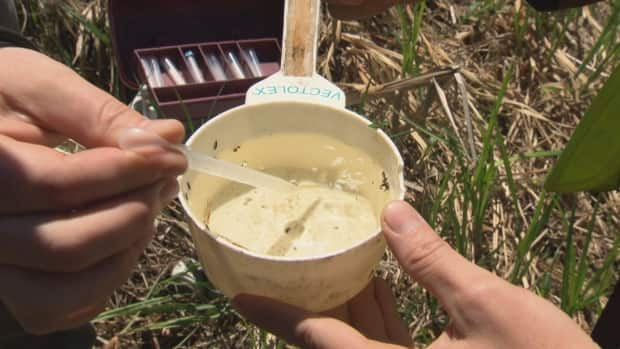Regina city workers are trying to take a bite out of the mosquito population as summer arrives

If you had a stinging suspicion there are more mosquitoes buzzing around Regina, you're right.
And expect those bloodsucking insects to multiply even more in the coming weeks, says Russell Eirich, manager of Open Space Services with the city of Regina.
"I'm sure we're going to see a really interesting spike," Eirich said. "We know that there's a lot of mosquitoes out there, and I'm sure that our counts are going to confirm that."
Last week, mosquito numbers found in city traps were low, but Eirich says high winds and the deluge of rain that came down in Regina depressed the counts.

Between June 7-11 a total of 45 mosquitoes were caught in city traps within the control zones. That works out to an average of four mosquitoes per trap.
In 2020 during the same period 62 mosquitoes were caught.
In the rural area just outside the control zone, city traps captured 163 mosquitoes last week (82 per trap) compared with 42 during the same period in 2020.
In Saskatoon the average trap caught just 0.68 mosquitoes last week. That is well below the 10-year average of 4.07 mosquitoes per trap in that city.
Historically, mosquito counts are on the rise through June and peak in the last weeks of July.
"I think in 1993, our biggest year was 40,000 mosquitoes trapped (in one week)," Eirich said.

Regina has 26 seasonal staff in pest control, and all are working on mosquito control at the moment.
"What we're doing is we're actually trying to treat the standing water bodies where the mosquito larvae are developing," Eirich said.
"We use a biological product [VectoBac] that the larvae will feed on and will cause the larvae to stop eating and then will die because of that."
Eirich says Regina does not have a program to control adult mosquitoes.
The Culex tarsalis mosquito, which can carry the West Nile virus, typically will begin showing up around this time of year, Eirich says.
The weather and homeowners ensuring there's no standing water on their property will determine how the rest of the summer develops.
"The homeowners are our biggest asset for helping us fight mosquitoes," Eirich said.
"If we've left any bowls or cups outside and we forgot to drain them out, or if you've got small paint cans or bird baths that are just full and stagnant, make sure you drain it.
"A cupful of water will create a thousand mosquitoes, so the more water we can get drained, we're definitely helping the whole community out."
Low waterfall over the last few years has left dry soil conditions, which will absorb a lot of the standing water.
"That said, what Mother Nature will throw at us in terms of a cyclical storm season will definitely drive it," Eirich said. "If we get a little bit of a drying period, we should be OK. But it's all about watching the weather as to what's going to happen over the next two to three weeks."

 Yahoo Movies
Yahoo Movies 